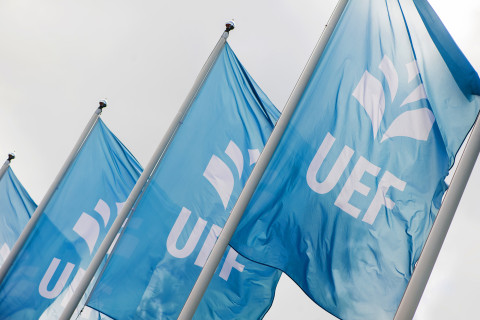Professor of Nutrition Therapy Ursula Schwab and her research group at the University of Eastern Finland have, as part of the European BestTreat research network, secured more than 800,000 euros of funding for research into fatty liver disease. BestTreat is dedicated to developing novel measures against non-alcoholic fatty liver disease. Professor Schwab coordinates the research carried out at the University of Eastern Finland, focusing on the role of intestinal microbes in fatty liver disease.
Non-alcoholic fatty liver disease is one of the most common diseases worldwide – it is estimated that up to 27% of the population suffer from it. The symptoms are manifold and range from fatty degeneration to cirrhosis of the liver or even liver cancer. The disease often remains undetected until severe or life-threatening complications occur. Triggers can be, for example, the diet, an imbalance in the intestinal microbiome or genetic factors. However, the underlying mechanisms are still unclear and there is no way of predicting the individual course of the disease.
Funded by the European Commission, BestTreat seeks to develop new diagnostic and treatment options for non-alcoholic fatty liver disease. The objective is to use microbes that ensure functioning digestion and development of the immune system in healthy people. This so-called intestinal microbiome is disturbed in fatty liver disease, but the exact role of the microbes in the onset and progression of the disease is still unclear. The researchers seek to find out how the intestinal microbiome changes in fatty liver disease and develop methods to restore it.
Together with partners from the Netherlands, University of Eastern Finland researchers will carry out an exercise intervention in people suffering from non-alcoholic fatty liver disease. Stool samples will be collected from the intervention participants, and the microbes present in the samples will be studied in mouse models. Combining data from the intervention with data from international cohorts, the researchers will also use mouse models to analyse mechanisms linking the intestinal microbiome to non-alcoholic fatty liver disease. These observations can benefit the diagnosis and prognosis of fatty liver disease.
The BestTreat research network includes partners from Finland, Denmark, the Netherlands and Germany, combining their scientific expertise in systems biology, human biology and microbiology to tackle this complex topic. In addition to improving diagnostics and prognosis, the researchers seek to develop therapeutic approaches to restore the balance of the intestinal microbiome.
For further information, please contact:
Professor of Nutrition Therapy Ursula Schwab, tel. +358 40 355 2791, ursula.schwab (a) uef.fi
